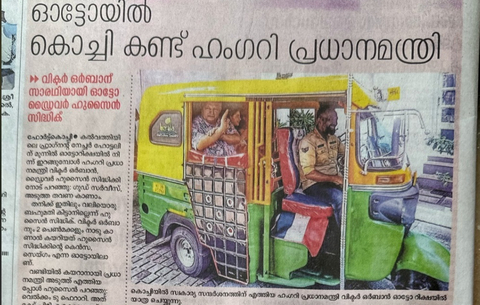NATO radar
The message is clear: the political decision was clear and timely, the fruit of dialogue and tolerance, it was a wise compromise, a victory for the environmentalists, a success for the civil sector, a success also for Hungarian constitutional democracy, and proof of our commitment to NATO. The only problem with this summation is that none of it is true.
The Medgyessy and Gyurcsány governments worked tirelessly to exclude public opinion and environmental movements. They tried to create a fait accompli, to influence the media, to exploit economic arguments ("we'd have to pay for a change of plan"). They professed powerlessness before the promises made to NATO. The Horn and Orbán governments did much the same. And next year's government would do the same too, whether it is red or orange or a blend of colours.
Constitutional institutions (like the ombudsman), respected intellectuals (like László Sólyom), professional associations and environmentalists achieved very little on the political stage. The movement, set up in 2002, was fully integrated into national and international activist networks. It wrote history for its level of organisation, its non-violent actions, its political neutrality and its public recognition. But that was not enough for victory in our democracy. The Defence Ministry, with its inherited sense of superiority, won an easy victory over Pécsvárad and Hosszúhetény . The fact that planning rules and environmental legislation were violated had no legal or personal consequences for those behind the investment. The professional and civil committees that wrote two reports had insufficient tolerance and openness to dialogue to ask local civic movements for their opinions. Finally, it was László Sólyom's elevation to the presidential purple that made the building of a radar in the Zengő's impossible. The new president would not budge, and a once-a-decade chance meant tilted the scale away from the army in favour of the environmentalists. If Katalin Szili, that Pécs local patriot, had become president, or if Péter Medgyessy were still PM, then the decision to pull the opposition's "environmental tooth" would not have been taken.
Ferenc Gyurcsány, the PM, manoeuvred cleverly. He weakened his opponents so as to escape from the inherited trap. It was a real political achievement, but the civil activists should not breath out just yet, because just 15km away, even closer to Pécs, in a similar protected natural landscape, a yet more expensive radar base will be built on an even higher hill. Anyone who's seen the projections and a similar radar in another protected landscape at Bánkút have no doubt that such monstrosities can only damage the environment. We should not be deceived into believing that NATO is hearing this for the first time. The government - correctly - agreed everything with them in advance. The radar is not being built because NATO needs it to guarantee Hungary's air defences. On the contrary: the military alliance needs the Hungarian radar system to be part of the alliance's.
The Civil Society for Zengő movement eventually achieved its goals, as did the stubborn, uncompromising Defence Ministry. NATO should also be happy, because it gets its beloved radar, and it need have no concerns about a precedent leading to an international anti-radar movement. There are no armed, anti-NATO or pacifist movements in Hungary, and environmentalists are not planning anything of that kind. So the road to the top of Nagy-Tubes hill will be widened, the trees will be felled, the protected plant species will die, and the radar dish will rise from the summit of the hill. The next argument will come after the elections, when it will leak out that the government is secretly negotiating with the Americans to build an anti-missile defence installation.









